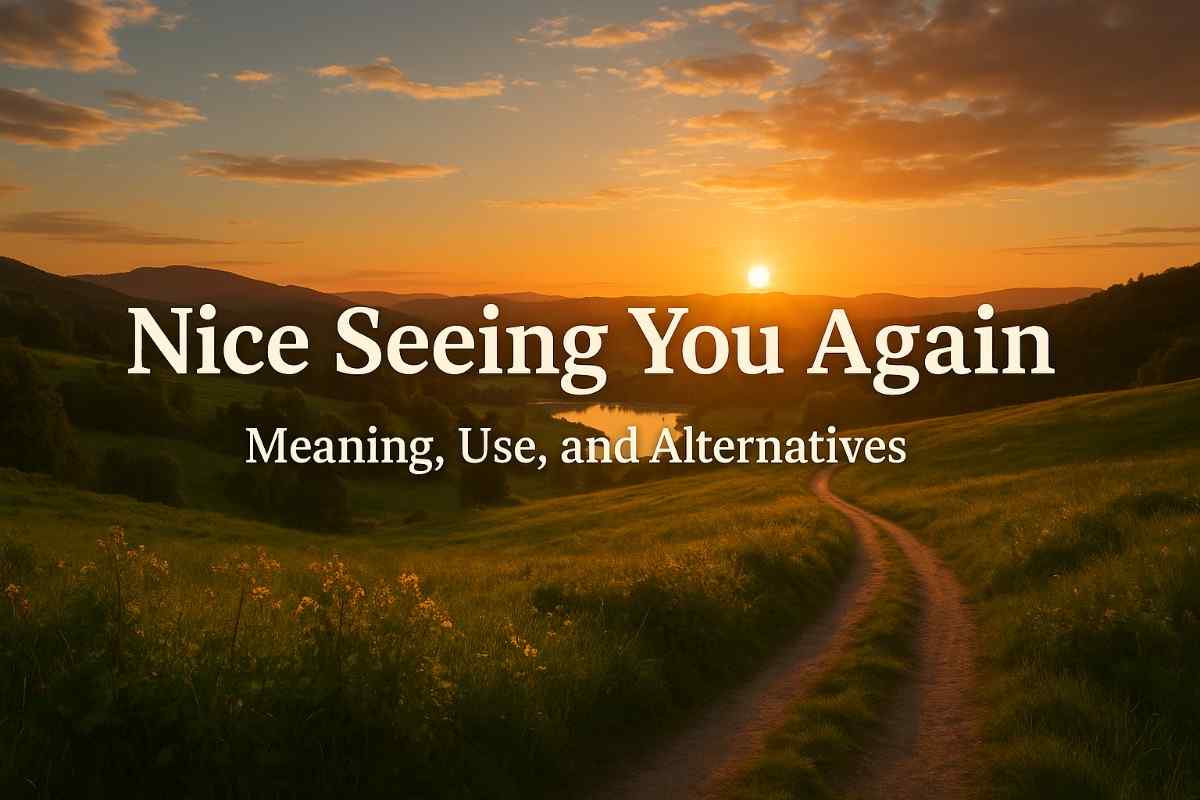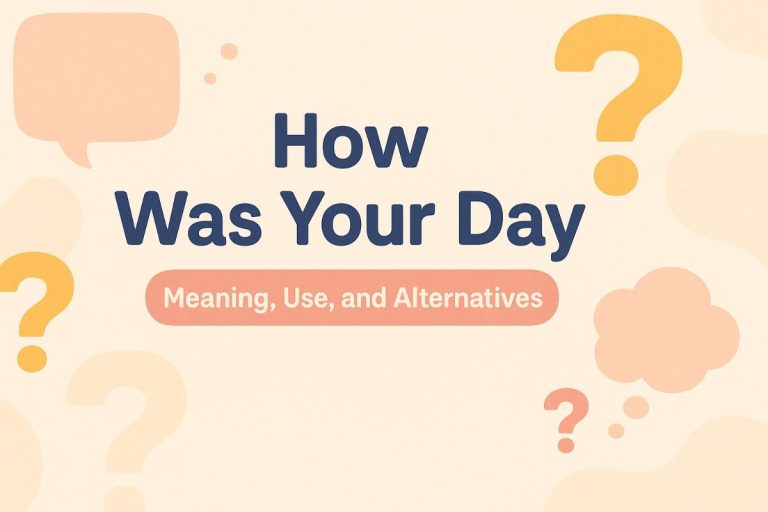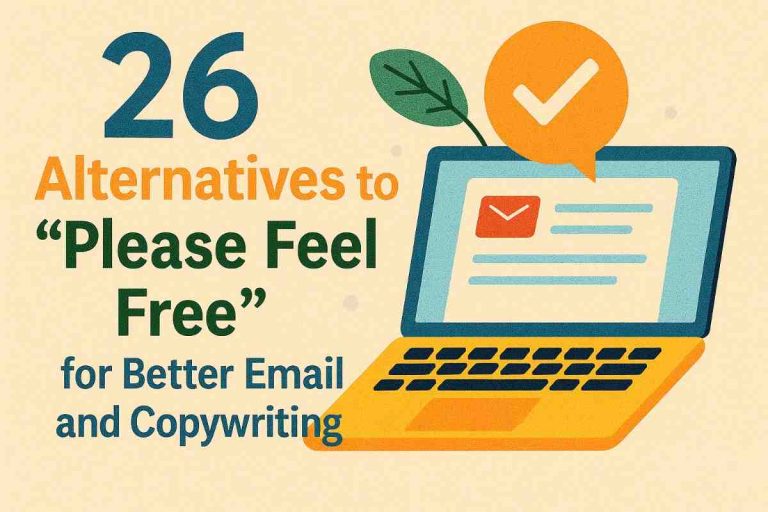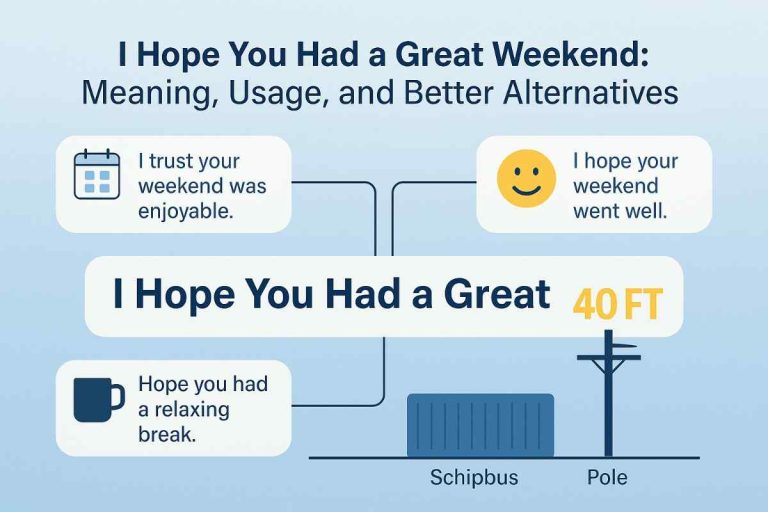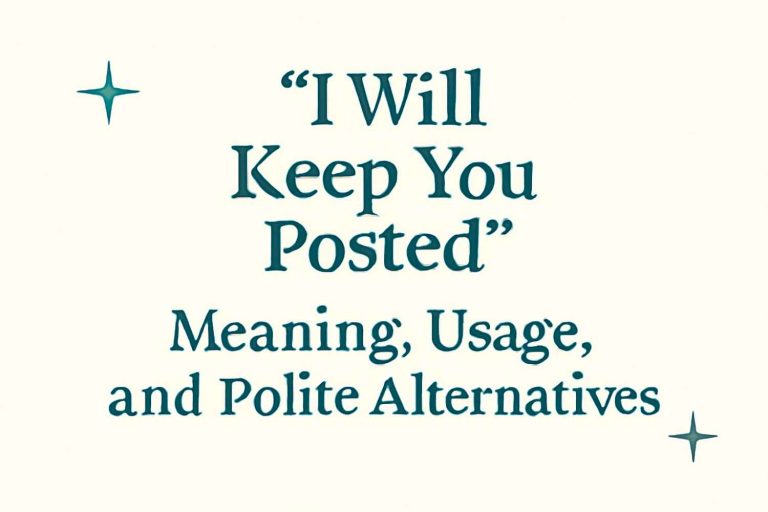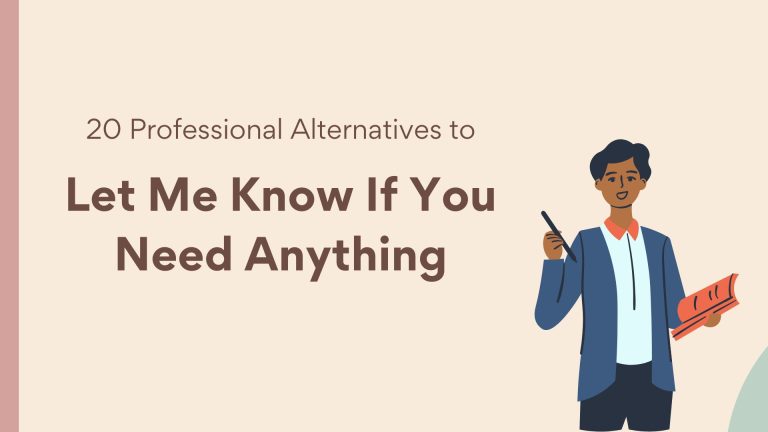“Nice Seeing You Again” – Meaning, Use, and Alternatives
Conversations are full of small phrases that carry a lot of warmth. One of them is “Nice seeing you again.” It’s short, polite, and friendly. You might say it after running into someone you know or at the end of a planned meeting.
While it works well in most settings, you may want other ways to express the same feeling. Sometimes you want to sound more casual. Other times, you might want something more formal.
This guide will explain what “Nice seeing you again” means, where and when to use it, and 20 alternative phrases you can try. You’ll also learn how to respond if someone says it to you.
What Does “Nice Seeing You Again” Mean?
The phrase means you enjoyed meeting or reconnecting with someone you already know. It shows that you’re glad the meeting happened.
It can be used with friends, coworkers, clients, or casual acquaintances. The tone depends on how you say it. With a smile, it feels warm. With a handshake, it feels more formal.
It’s not just about politeness. It’s a way to keep a friendly connection and leave a good impression.
When and Where to Use “Nice Seeing You Again”
You can use this phrase in many situations:
- After a planned meeting – Ending lunch with a client or coffee with a friend.
- After a chance encounter – Bumping into someone at the store or at an event.
- At social gatherings – Weddings, reunions, or community events.
- At work – Conferences, training sessions, or team meetings.
It works for both short and long gaps between meetings. Whether you last saw the person a week ago or years ago, it still fits.
But if you want your words to sound fresh or more personal, it’s worth knowing some alternatives.
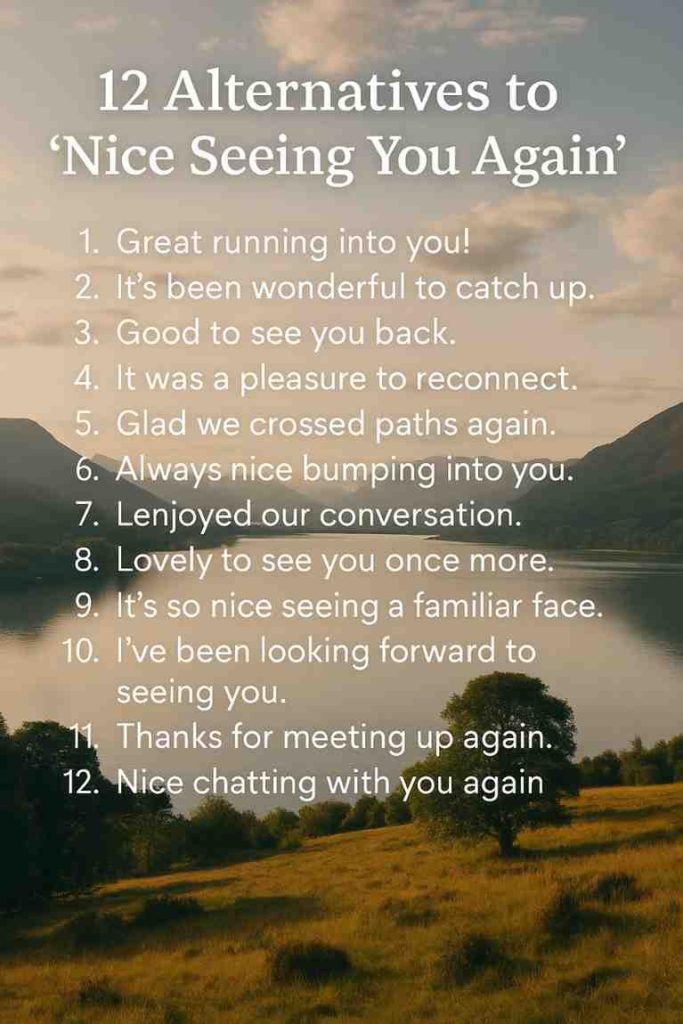
20 Alternatives to “Nice Seeing You Again”
1. “Great to see you again.”
Meaning: I’m happy we met again.
Explanation: Similar to the original phrase but adds more enthusiasm.
Scenario Example: “Great to see you again. Let’s catch up soon.”
Tone: Friendly and warm.
2. “Always good to see you.”
Meaning: I enjoy every meeting with you.
Explanation: Works for people you see often.
Scenario Example: “Always good to see you—take care.”
Tone: Familiar and kind.
3. “So glad we ran into each other.”
Meaning: I’m happy this meeting happened, even if it wasn’t planned.
Explanation: Best for chance encounters.
Scenario Example: “So glad we ran into each other at the market.”
Tone: Casual and cheerful.
4. “It’s been too long.”
Meaning: I’ve missed seeing you.
Explanation: Good when a lot of time has passed.
Scenario Example: “It’s been too long—we should plan something soon.”
Tone: Warm and nostalgic.
5. “Good catching up with you.”
Meaning: I enjoyed our conversation.
Explanation: Works after a talk, not just a quick hello.
Scenario Example: “Good catching up with you at the reunion.”
Tone: Friendly and conversational.
6. “I’m glad we could meet again.”
Meaning: I’m happy we had the chance to reconnect.
Explanation: More formal, works in business settings.
Scenario Example: “I’m glad we could meet again to discuss the project.”
Tone: Polite and professional.
7. “I enjoyed our chat.”
Meaning: The conversation was pleasant.
Explanation: Nice for wrapping up a friendly or casual talk.
Scenario Example: “I enjoyed our chat—hope to see you again soon.”
Tone: Light and friendly.
8. “That was a nice surprise.”
Meaning: I didn’t expect to see you, but I’m happy I did.
Explanation: Best for unplanned encounters.
Scenario Example: “That was a nice surprise—let’s not wait so long next time.”
Tone: Warm and spontaneous.
9. “I’m happy we crossed paths.”
Meaning: I’m glad life brought us together today.
Explanation: A poetic way to say you’re happy about the meeting.
Scenario Example: “I’m happy we crossed paths at the conference.”
Tone: Warm and thoughtful.
10. “I’m glad we reconnected.”
Meaning: It’s good to talk again after time apart.
Explanation: Works for friends, old coworkers, or classmates.
Scenario Example: “I’m glad we reconnected after all these years.”
Tone: Warm and slightly sentimental.
11. “Let’s do this again soon.”
Meaning: I want to meet again soon.
Explanation: Encourages another meeting.
Scenario Example: “Let’s do this again soon—it was great catching up.”
Tone: Friendly and inviting.
12. “It’s always a pleasure.”
Meaning: I always enjoy seeing you.
Explanation: Good for formal or polite conversation.
Scenario Example: “It’s always a pleasure working with you.”
Tone: Polished and respectful.
13. “That made my day.”
Meaning: Seeing you was a happy moment for me.
Explanation: Shows genuine joy.
Scenario Example: “That made my day—thanks for stopping by.”
Tone: Warm and cheerful.
14. “I’m so glad I saw you.”
Meaning: Seeing you made me happy.
Explanation: Simple and heartfelt.
Scenario Example: “I’m so glad I saw you before you left.”
Tone: Warm and personal.
15. “I’ve missed seeing you.”
Meaning: I’ve noticed your absence.
Explanation: Works for close friends or family.
Scenario Example: “I’ve missed seeing you—let’s not wait so long.”
Tone: Affectionate and personal.
16. “Always nice to bump into you.”
Meaning: I like it when we meet by chance.
Explanation: Great for casual, friendly relationships.
Scenario Example: “Always nice to bump into you at the park.”
Tone: Light and informal.
17. “We should do this more often.”
Meaning: I’d like to see you more frequently.
Explanation: Encourages more contact.
Scenario Example: “We should do this more often—it’s always fun.”
Tone: Friendly and inviting.
18. “It was good to talk again.”
Meaning: I enjoyed our conversation after time apart.
Explanation: Good for both casual and professional contexts.
Scenario Example: “It was good to talk again about the project.”
Tone: Neutral and polite.
19. “That was fun.”
Meaning: I enjoyed spending time with you.
Explanation: Works well for social events or lighthearted meetings.
Scenario Example: “That was fun—let’s do it again soon.”
Tone: Playful and warm.
20. “You haven’t changed a bit.”
Meaning: You look or seem the same as before.
Explanation: Best used with people you haven’t seen in years.
Scenario Example: “You haven’t changed a bit since college.”
Tone: Friendly and nostalgic.
Read More – “I’m So Sorry for Your Loss” – Meaning, Use, and Alternatives
How to Respond When Someone Says “Nice Seeing You Again”
When someone says “Nice seeing you again,” keep your reply short and genuine. You don’t need to overthink it.
Common responses include:
- “Nice seeing you too.”
- “Same here.”
- “Always good to see you.”
- “It’s been great catching up.”
- “Let’s do this again soon.”
If you have time, you can add a plan or invitation:
“Nice seeing you too—let’s grab lunch next week.”
The key is to match their warmth and keep the tone friendly.
Conclusion
“Nice seeing you again” is a simple phrase, but it can strengthen relationships. It works for friends, colleagues, and even clients. Still, variety in your expressions can make you sound more genuine and help you connect better.
By learning these alternatives, you can adapt your words to suit different people and situations. Whether you keep it casual or make it formal, the most important thing is sincerity.
The next time you meet someone, think about how your words can leave a lasting, positive impression.

